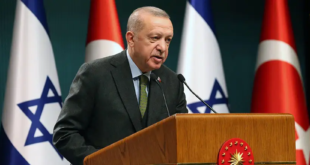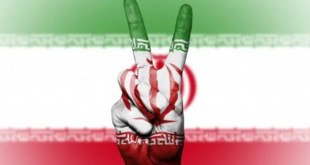 JERUSALEM (Reuters) – Prime Minister Ehud Olmert met Palestinian President Mahmoud Abbas on Sunday, hoping to cap his scandal-plagued leadership of Israel with a document of peace understandings within the next two weeks, officials said.
JERUSALEM (Reuters) – Prime Minister Ehud Olmert met Palestinian President Mahmoud Abbas on Sunday, hoping to cap his scandal-plagued leadership of Israel with a document of peace understandings within the next two weeks, officials said.
Olmert’s Kadima party votes on September 17 on his successor. Suspected of corruption, Olmert has promised to resign after the ballot, although he could stay on as caretaker prime minister for weeks or months until a new government is formed.
Israeli officials said Olmert aimed to persuade Abbas to agree to a document of understandings, serving as a framework for a peace agreement, that they could take to Washington ahead of the Kadima poll.
Abbas has been cool to the idea of any partial agreement despite U.S. hopes of reaching at least an outline of a peace deal before President George W. Bush leaves office in January.
Neither Olmert nor Abbas made any statement at the start of their talks in Jerusalem.
But Yasser Abed Rabbo, an aide to Abbas, told Reuters it was “premature to speak about a document.” He said “the differences on the core issues are still very wide”.
Tzipi Livni, Israel’s foreign minister and front-runner in the Kadima race, has cautioned against papering over differences with Abbas in U.S.-brokered talks and rushing towards an accord.
Her comments were echoed by U.S. Secretary of State Condoleezza Rice during a Middle East visit last week.
Olmert spokesman Mark Regev, while acknowledging that Israel would press on with efforts “to reach a historic” agreement, said he was not aware of any time limit.
Cabinet minister Eli Yishai of the ultra-Orthodox Shas party said Olmert, who was questioned again by police on Friday and has denied any wrongdoing in a series of corruption probes, doesn’t have “legal legitimacy to negotiate, and certainly not to reach any agreement”.
NEW PROPOSALS
A senior Abbas aide said Rice had proposed several bridging proposals during her 25-hour visit last week and they would be discussed at the Olmert-Abbas meeting in Jerusalem.
They included working out a territorial swap and basing the borders of a future Palestinian state on lines that existed before Israel captured the West Bank in a 1967 war, while taking into account several major Jewish settlement blocs.
The issue of Jerusalem would be resolved as part of the borders debate but religious sites and the walled Old City where they are located would be discussed at a later stage, the aide said.
On the fate of Palestinian refugees, the aide said the United States would work internationally to provide them with compensation and discussions would begin on deciding how many could return to what is now Israel.
There was no immediate Israeli or U.S. comment on the aide’s remarks.
Israel’s Haaretz newspaper said Olmert may propose international oversight for talks aimed at resolving the dispute over Jerusalem. Israel considers all of Jerusalem its capital, a claim that has not won international recognition. Palestinians want Arab East Jerusalem as the capital of their future state.
 Eurasia Press & News
Eurasia Press & News



